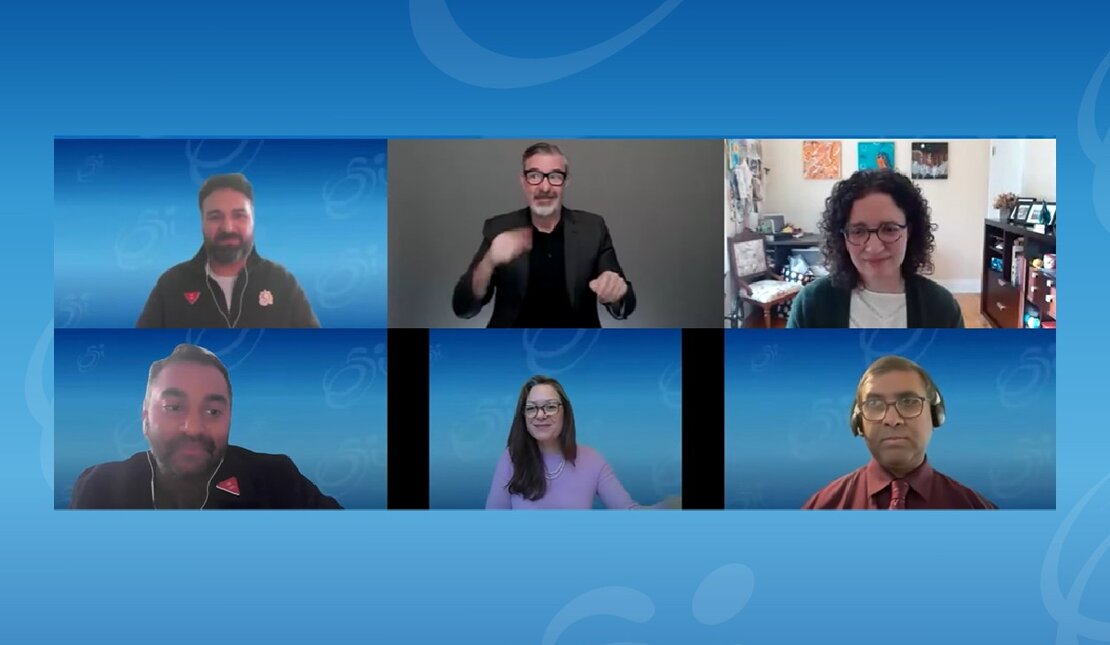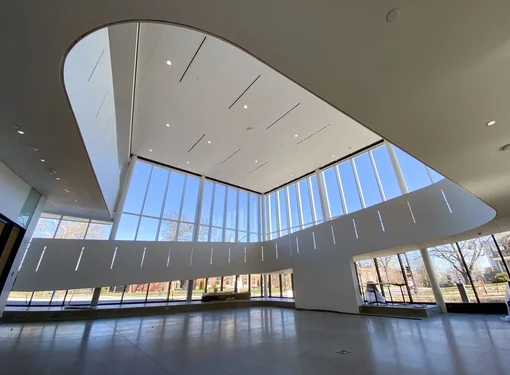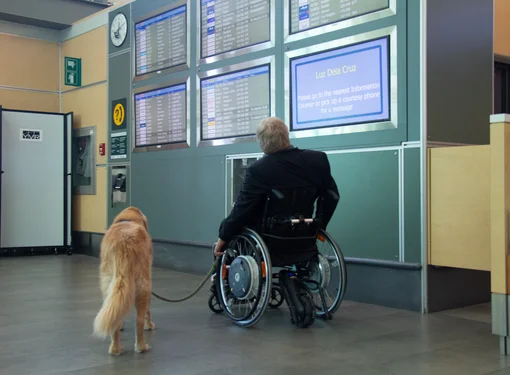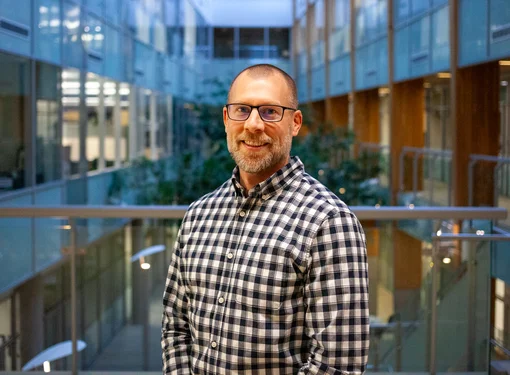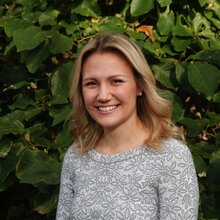The Power of Inclusive Decision Making: A Recap
International Day of Persons with Disabilities is an internationally recognized day, offering the opportunity to acknowledge the achievements and contributions of people with disabilities while also reflecting on the work that remains to ensure inclusion and equity for all.
In honour of International Day of Persons with Disabilities, the Rick Hansen Foundation hosted a live webinar called the Power of Inclusive Decision Making.
This wonderful conversation continued our Power of Inclusion series by bringing together a variety of speakers from different backgrounds for an insightful and engaging discussion.
The discussion, moderated by Chloe Angus, Director of Lived Experience at Human in Motion Robotics, included the following panelists:
- Lisa Park – Director Strategy & Operations and Accessibility Consultant, KPMG Canada and founder of the organization’s Disability Inclusion Network.
- Abhishek Sarathy – Associate Vice-President of Diversity, Inclusion, and Belonging, Canadian Tire Corporation.
- Dr. Mahadeo Sukhai – Blind geneticist and renowned accessibility expert of postsecondary education and employment for people with disabilities.
- Jon Turco – Associate Manager at Canadian Tire Corporation and founder of the company’s Employee Resource Group EN-ABLE.
The discussion focused on the importance of inclusion in decisions, exploring the value of integrating lived experience of people with disabilities and how allies can play an important role in decision making.

Creating A Culture of Inclusion
“If we do not see ourselves as workers within the places we work for, why are we working there?” Dr. Sukhai explained during the discussion. “That creates a problem with retention, a problem with motivation.”
27% of Canadians identify as having a disability, constituting a large portion of our workforce and workplaces.
“Why shouldn't lived experience be integrated into organizational culture? Organizational culture is defined by people. Organizations are made up of people. And so, culture is defined by all the people who are present at the organization,” Dr. Sukhai noted. “So, why wouldn't we include those voices in shaping organizational culture. Because if we don’t include them, then what ends up happening is the culture doesn't serve everybody it needs to serve."
Not only do people with disabilities make up a significant chunk of the workforce, but also the consumer base.
Turco explained: “Persons with disabilities is one of the most lucrative markets out there. The Global accessibility report said that there are approximately 1.6 billion people globally with a disability, which equates to $1.3 trillion dollars in disposable income. So, by not being inclusive and having those voices in the room, you’re pretty much saying you don’t care about those sales.”
Engaging Allies
Culture is more than just people with disabilities advocating for themselves, allies can help foster a sense of inclusion no matter the level of work they may be at.
“We believe in strength in numbers, right? Dr. Sukhai asked. “There are no numbers if the person with a disability, who is a minority in the workplace, is advocating on their own behalf. There are only numbers when allies come to the table.”
Creating that culture of inclusion, where everyone is emboldened, is critical to empowering allies to engage meaningfully.
Sarathy explained that, as a person without a disability, he asks himself at every stage, “how can I incorporate the voices and perspectives who are maybe not in the room. Who should be in the room, what decisions are being made and about whom they are being made.”
It is important to create spaces for everyone to engage and have the mechanisms in place for allies to learn.
“There is power in our employee resource groups in educating and building a culture with allies,” Sarathy explained. “How do we give accountability to our allies to actually take ownership for working against what we can think about as ableist attitudes or ways that may be the ‘norm’, and how do we break that down.”
Breaking down attitudinal barriers
“Ableism by definition is that unconscious belief that being non-disabled is the social norm,” Park explained. “This word often comes with rejection from people because it sounds harsh, and people don't want to be told they’re ableist. I don’t believe people are intending to be that way. But it is how society has operated forever, and therefore makes these beliefs or acts, that we call ableism, seem normal.”
Dr. Sukhai tagged onto this point by adding in the difference between being not ableist and anti-ableist.
“Everybody has a bias,” Dr. Sukhai said. “That’s okay. That's how our brains work. If we recognize that we all have biases, then we can own up to our biases. And if we own up to our biases, that’s the first step in saying I’m anti-ableist.”
Providing a tangible example, Dr Sukhai gave the hypothetical of if he went into a meeting and the materials were in print format with small font, someone else speaks up and says this isn't readable and that the meeting shouldn't begin until it is for everyone. That is anti-ableist.
Understanding these biases exist and that they are built into our structure and policies is critical to beginning to break them down. Park believes that one of the things that workplaces can do to combat this is to provide education and awareness.
“For most people, I think if they are aware of how their beliefs or decisions impact others negatively, they genuinely want to change that. The more aware that they are, the more that they will make a different decision the next time,” Park said.
This recap is a condensed summary, and some quotes have been shortened for space considerations. We invite you to watch the full recording of The Power of Inclusive Decision Making panel below.
